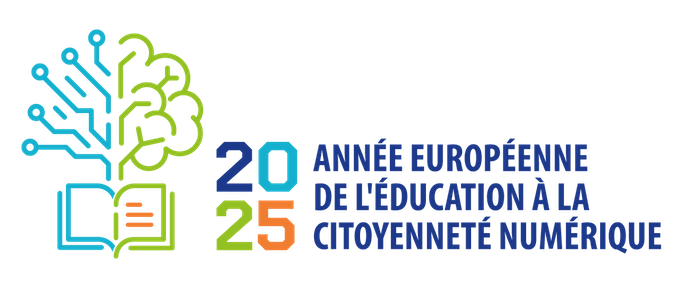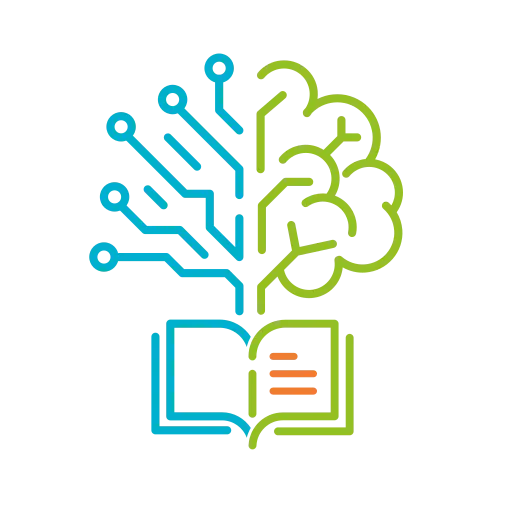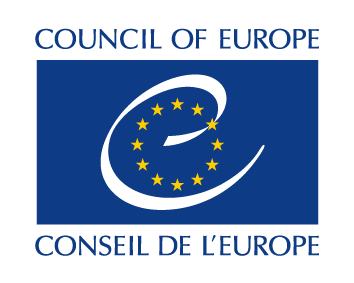- Digital Transformation Book (2020-2025). Axis 9.1 Education. The strategy of the Ministry of Education and Religious Affairs (MoE), in collaboration with the Ministry of Digital Governance (MODG), is to strengthen the digital experience at every level of Education, including the administration of education, the educational process, and services to the citizens. Priority is given to digital learning culture. The digital learning culture focuses on the development of digital content, the development of synchronous and asynchronous distance learning tools and platforms, as well as the infrastructure and equipment of physical education spaces of all levels. One of the strategic axes of intervention is the Digital Capabilities and Skills. Specifically, Objective 3.1 refers to Digital Citizenship for children aged 4-15+ years old. The goal is for children as Digital Citizens to be able to use digital technology effectively, safely and responsibly. Objective 3.2 refers to the Contribution to the Development of Digital Skills in Compulsory and Secondary Education. Objective 3.3 concerns the Contribution to the acquisition of digital skills in Higher Education.
- On June 2020, with Law 4692/2020 the “Skills labs” were introduced in primary and secondary education aiming at school upgrading, etc. This law introduced the Skills Workshops in primary and secondary education. The main purpose of these workshops is to ‘add new thematic cycles in kindergarten and in the compulsory schedule of primary and lower high school, with the objective to enhance the cultivation of soft skills, life skills and digital and science skills to students’. The skills that are cultivated can be categorised into the following four Skills Cycles: Skills of the 21st century; Life skills; Skills of technology, engineering and science; Mind skills. Digital citizenship as such is mentioned as part of Life skills, constituting one of the four subcategories, defined as ‘Skills of digital citizenship’
- On 1.11.2024, the Hellenic Ministry of Education, Religious Affairs and Sports issued a Decision (Ministerial Decision 130372/ΓΔ4, Gov. Gazette 6048, vol. B’/1.11.2024) regarding the implementation of the curriculum « Active Citizenship Actions » in Kindergarten, Primary and Secondary education”. This measure aims to transform into school practice the need for education on active citizenship, which is a prerequisite for digital citizenship. As provided in the Ministerial Decision, from the school year 2024-2025 onwards, the Curriculum « Active Citizen Actions » will be implemented in Kindergartens, Primary Schools, and Secondary Schools of the country. The new curriculum incorporates the 17 Sustainable Development Goals (SDGs) as adopted by the United Nations (UN).
Country profile list

Greece
- Digital Transformation book (2020-2025): The Citizen’s Digital Academy is an initiative of the Ministry of Digital Government of Greece to enable the free access of all Greek citizens to high-quality digital education services and material. Currently, more than 279 courses, including a variety of digital skills self-assessment tools are available on the government platform. The educational content is offered free of charge by organisations with recognised academic and educational prestige: Greek academic institutions, well-known international companies, banking institutions, telecommunications providers and digital education organisations Creation of the National Coalition for Digital Skills and Employment for the dissemination of initiatives on digital skills in Greece. Development of educational programs and creation of technological laboratories for the development of students’ digital citizenship. The development of Digital Citizenship for children through asynchronous education activities and their participation in workshops (such as the open EDU labs) through technology hubs in cooperation with municipalities and parents’ associations is focused on 3 main pillars: 1. To develop critical thinking regarding the use of digital media; 2. Understanding the risks and learning practices to ensure safety in the digital world; 3. Developing responsibility for their ‘rights’ and ‘responsibilities’ arising from their use of digital media.
- Law 4692/2020 – Government Gazette 111Α’ Gov. Gazette 111/12.6.2020 ‘School upgrading and other provisions’.The Skills Labs is a new, innovative school module which focuses on the cultivation of soft and digital skills. All education educational materials are uploaded on an online, interactive platform which allows teachers to collaborate and exchange good practices. The Skills Labs was awarded the Global Education Network Europe (GENE) Global Education Award (2020/2021).
Awareness raising activities beyond these strategies:
3. MySchool Digital Service (focus on technological upgrade in education) is an integrated information system for the electronic submission of applications and the management of the country’s primary and secondary education staff.
4. The Panhellenic School Network (PSD) (connects all schools and administrative units of primary and secondary education). Through this network the Ministry of Education and Religious Affairs provides the educational community with e-learning services, communication, and collaboration, e-government services as well as helpdesk and user support services.
5. Hellenic Centre for Safe Internet: webinars and training. Campaign: Empowering online safety, Help-Line: qualified psychologists provide support and advice on issues related to excessive Internet use, cyberbullying, exposure to inappropriate content and other concerns. Open Line of Complaints: regarding the illegal content of the safe-Line internet, receives complaints about child abuse and illegal internet use. The Centre published a toolkit that aims to develop students’ critical thinking and to help them to be able to distinguish truth from misinformation on the internet.
Sources
- https://digital-skills-jobs.europa.eu/en/actions/national-initiatives/national-strategies/greece-digital-transformation-strategy-2020-2025
https://nationaldigitalacademy.gov.gr/ - https://eurydice.eacea.ec.europa.eu/news/greece-21st-century-skills-labs-ergastiria-dexiotiton
- https://myschool.sch.gr/
- www.sch.gr
- https://hadea.ec.europa.eu/news/safer-internet-media-literacy-online-world-2023-02-28_en
https://saferinternet4kids.gr/
- Digital Transformation Book (2020-2025). The Digital Transformation Coordinating Committee is tasked with coordinating of the implementation of the Digital Transformation Book for the effective implementation of its main interventions in the entire public sector. The Digital Action Monitoring Manager, in collaboration with the other team members and the foreseen committees, participates in its implementation. The Digital Actions Manager also monitors the progress of the projects, services and actions of digital transformation of his organisation, ensures their successful, timely and seamless delivery, according to the relevant planning and is responsible for the continuous updating of information. In addition, they are in the process of creating a Digital Skills Observatory (permanent mechanism for the continuous monitoring of the development of digital competences in the country through the monitoring of policies, training actions for the provision of digital competences of citizens and professionals). The Observatory will measure monitoring and evaluation indicators and feed into the DESI indicators with reliable data. A first report concerns the first year of implementation of the strategy (July 2021-December 2022).
- Law 4692/2020. The Institute of Educational Policy should write an evaluation report at the end of the pilot phase. The key initiatives of the law are: curriculum enhancements, pilot and experimental schools and ICT integration.
Sources
According to the online survey with national authorities, the design of policies and relevant legislation in all areas includes a prior nationwide online public consultation. This is a procedure open to all stakeholders who can add their comments, proposals, etc. on the law in question before its final draft.
1. Digital Transformation Book (2020-2025). There was a public consultation September-December 2020 (collaboration with stakeholders from the public and private sector as well as with the research & academic community and the civil society)- The BPM has an open and dynamic character, as it will continue to be co-shaped and updated annually in cooperation with the competent bodies of the Public Administration and after consultation with organised civil society (does not specify)
2. Law 4692/2020. Education materials for the Skill Labs are developed by civil society (universities, non-governmental and intergovernmental organizations, citizens’ groups, local government, private research centres as well as educators) and are evaluated, selected and monitored by the Institute of Educational Policy. All education educational materials are uploaded on an online, interactive platform which allows teachers to collaborate and exchange good practices.
Sources
- Digital Transformation Book (2020-2025). In order to achieve the strategy and the objectives for the development of skills/competences, the Ministry of Digital Governance created an « Umbrella of Digital Skills/Competences » by setting up an Organisational Unit within the National Network of Infrastructures for Research & Technology – Technology & Engineering (NENTR/ΕΔΥΤΕ) responsible for the implementation of the strategy. In this context, synergies are sought with the respective Ministries of Interior, Education and Religious Affairs, Labour & Social Affairs, Development and Investment, Rural Development and their supervised organisations such as the Hellenic Ministry of Education, OAED, EOPPEP, IEP, DIMITRA, etc., as well as synergies with relevant educational and research institutions, professional bodies, social partners and individuals who have distinguished themselves with their initiatives in digital technologies. The Digital Action Monitoring Manager, in collaboration with the other team members and the foreseen committees, participates in its implementation. There is also support from the National Coalition for Digital Skills and Jobs.
- Law 4692/2020. See Q4
Sources
- Digital Transformation Book (2020-.2025). Organisation of meetings with public sector bodies, Recording the needs of all sectors of the BPM.
- Law 4692/2020. See Q4
Sources
- Greek National Coalition for Digital Skills and Jobs is a cooperation platform between various entities, public sector, private sector and civil society, which seek to promote digital skills in Greek society: aim of bridging the digital gap and promoting digital skills in Greek society: Workshops, training sessions, and awareness campaigns focusing on enhancing digital skills across various sectors.
- Greece Citizens Digital Academy (see Q2)
- Microsoft Greece: accelerate digitisation of the public sector and businesses with access to local cloud services and skill a minimum of 100,000 people in Greece in digital technologies. Many modules for teacher training are included. Special modules are also available to students and parents
- Vodafone foundation (generation next initiative) The programmes, delivered in partnership with charities and NGOs, will enable people to develop their knowledge and skills in using digital technologies, with the goal to reach millions of primary and secondary learners, those who are not in education, employment or training, and the elderly.
- NGOs. The Smile of the Child, EduACT – Action for Education
- The Greek Safer Internet Centre (SIC) and the Greek Ministry of Education, with the support of UNICEF, are joining forces to promote online safety and digital citizenship education specifically designed for migrant and refugee children living in Greece.
Sources
- https://digital-skills-jobs.europa.eu/en/actions/national-initiatives/national-strategies/greece-citizens-digital-academy
- https://news.microsoft.com/europe/2020/10/05/microsoft-announces-plans-for-first-dataCentre-region-in-greece-as-part-of-gr-for-growth-digital-transformation-initiative/
https://learn.microsoft.com/el-gr/training/educator-center/?source=mec - https://www.vodafone.com/news/digital-society/skills-upload-europe
- https://www.hamogelo.gr/gr/en/apostoli-orama-aksies/
https://eduact.org/en/home/ - https://www.betterinternetforkids.eu/practice/articles/article?id=7099797
- Vodafone: Through Instant Network Schools, Vodafone Foundation is the largest connected education partner of UNHCR, the UN Refugee Agency.
Sources
- Member of DCE promoters network
- Member of EU Media literacy expert group
- Member of Working Group on Digital Education: Learning, Teaching and Assessment (DELTA)
- Member of OECD Expert Group on Governance Responses to Mis- and Disinformation
- Member of Global Education Network (GENE)
- Member of Commission Expert group on Safer Internet for Children.
- Member of MEDDMO – Mediterranean Digital Media Observatory
- Member of Commission Working group on Schools
Sources
Training on DCE to teachers and other professionals:
Initial education on DCE is provided to future teachers by Universities.
In-service training is provided by the Ministry of Education, the Institute of Educational Policy, EKDDA, ITYE-Diophantos (technological pillar of the Ministry of Education, Religious Affairs and Sports), and other national and international organisations (Council of Europe, EU, Unesco, OECD, etc.).
Teachers, teacher trainers, etc. are facilitated to attend various training provisions (face-to-face, online, hybrid) on DCE, etc., through special leaves provided for this purpose.
Cooperation with Organisations (e.g. the Council of Europe, etc.) for teacher training on DCE and other relevant policies. https://www.coe.int/en/web/education/-/educators-support-your-learners-to-become-digital-citizens
Translation and dissemination of DCE Recommendation:
No response received in the online survey with national authorities.
Nous contacter
Service de l’Éducation
Conseil de l’Europe
Agora Building
1, Quai Jacoutot
67075 Strasbourg Cedex
France


